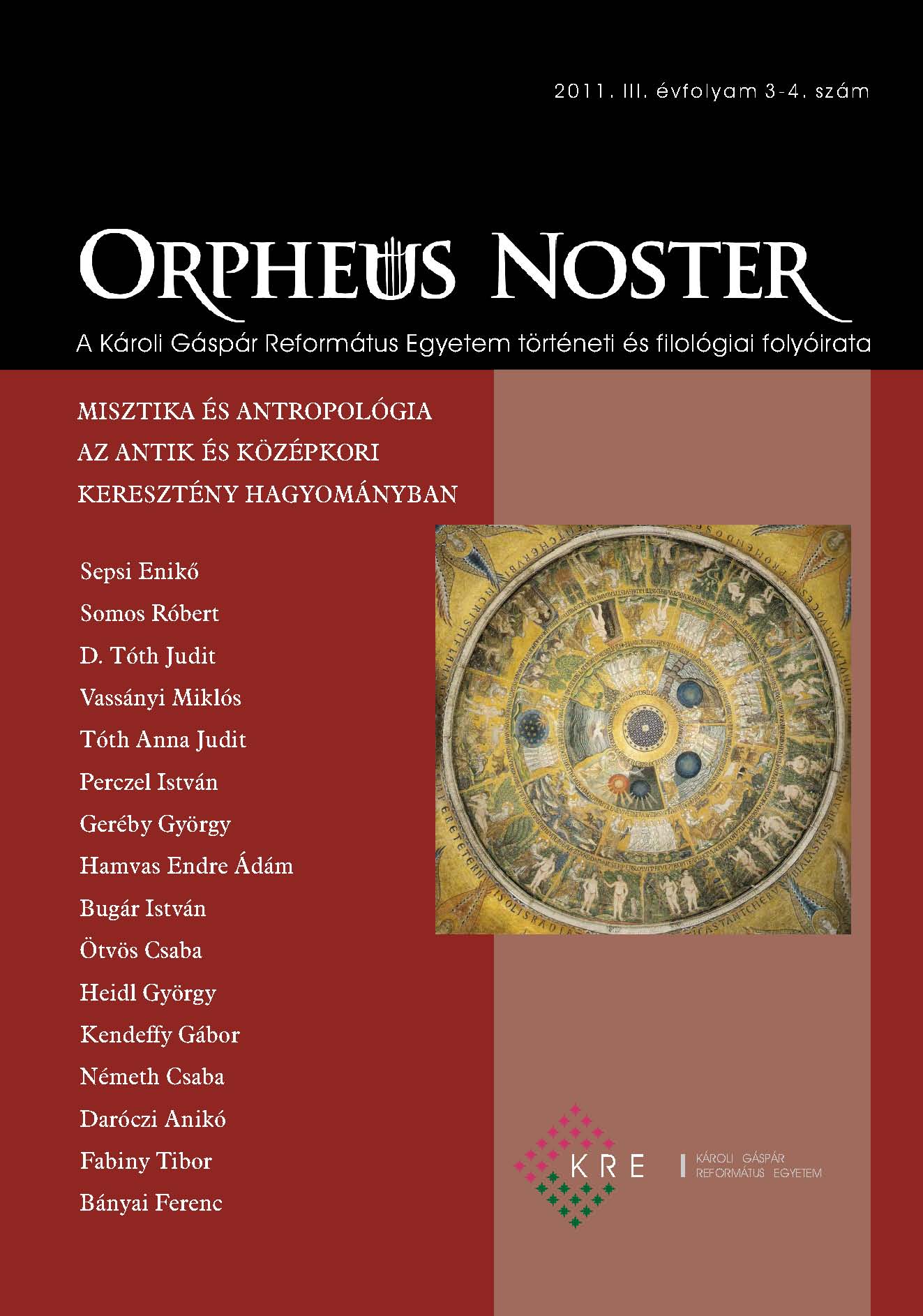Antropológia Eckhart mester misztikájában
Anthropology and Mystical Language in Meister Eckhart
Author(s): Ferenc BányaiSubject(s): Christian Theology and Religion, Language studies, Language and Literature Studies, Theoretical Linguistics, Theology and Religion, Semantics
Published by: Károli Gáspár Református Egyetem
Keywords: cognitive metaphors; mystical language; religion and metaphors; philosophy and metaphors
Summary/Abstract: The presupposition of the present study is that cognitive metaphors are necessary tools of rea resupposition of the present study is that cognitive metaphors are necessary tools of reasoning both in religion and philosophy and that their function is to understand ideas and theories easier. Furthermore, such metaphors are used in everyday life by laymen, not only by the clergy. In this paper, we focus on the conceptual character of In this paper, we focus on the conceptual character of metaphors in the vernacular ser- metaphors in the vernacular ser metaphors in the vernacular sermons and tractates of Eckhart, since his mystical teaching was based on cognitive metaphors. We think that the consequent use of metaphoric systems helped him to develop his markedly original philosophy and theology. When he used metaphors, his targets were the conceptual domains containing ideas on God, the human soul and the unio mystica, which Eckhart tried to explain through metaphors from a source domain referring to light, the Sun, fire and heat. By way of metaphoric expressions as “light is life and knowledge and virtue,” or “seeing is understanding,” we can identify some of his main theses. His key-metaphor, “the spark of the soul” is closely connected to his favorite themes. This “spark” in the very heart of the soul makes possible a genuine knowledge of the soul’s noble nature, enables us to conduct a righteous way of life and even to reach the union with God. This takes place when human beings liberate them- liberate themselves from themselves as mere creatures, and in this way find that which transcends them.
Journal: Orpheus Noster. A KRE Eszme-, Kultúr-, és Vallástörténeti Folyóirata
- Issue Year: III/2011
- Issue No: 3-4
- Page Range: 182-193
- Page Count: 12
- Language: Hungarian

